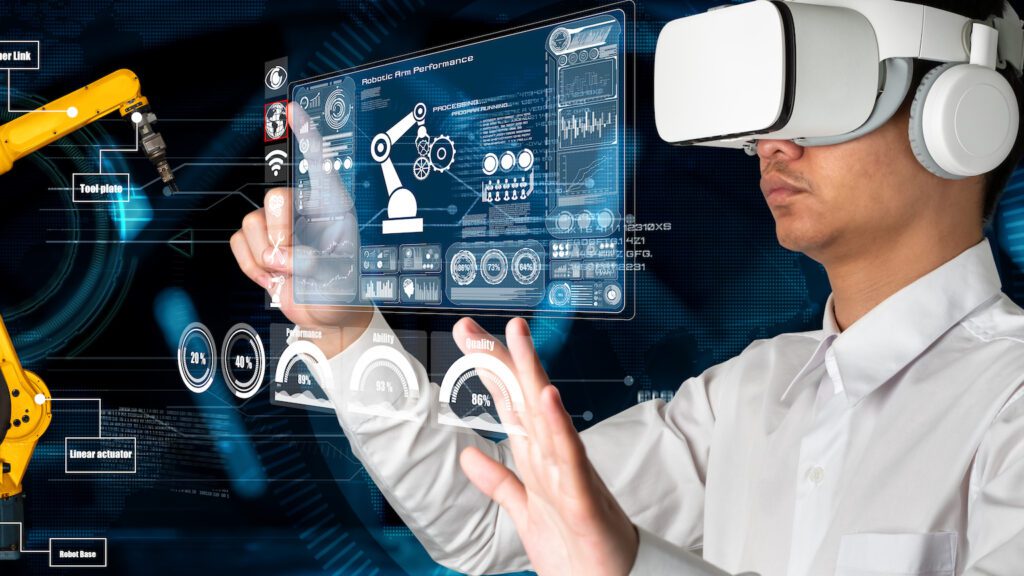Virtual Reality (VR) is revolutionizing various industries by providing immersive and interactive experiences. In healthcare, VR is effective in pain management, mental health treatment, and medical training. In education, it makes learning more engaging and interactive, allowing students to travel to historic sites and conduct experiments in simulated environments. Architects and real estate professionals use VR to give clients virtual tours of designs and properties. In gaming and entertainment, VR offers users immersive experiences. In tourism, VR allows individuals to engage in virtual tours of destinations. In the automotive industry, VR enables virtual prototyping and design evaluation. The transformative potential of VR is immense and expected to revolutionize more sectors.
Exploring the Transformative Potential of Virtual Reality in Various Industries
Introduction
Virtual Reality (VR) has emerged as a transformative technology, revolutionizing various industries by providing immersive and interactive experiences. This article delves into the potential impact of VR in different sectors, highlighting how it is reshaping the way we learn, work, and entertain ourselves.
1. Healthcare
VR holds immense promise in revolutionizing healthcare. It has proven to be an effective tool in pain management, mental health treatment, and medical training. By immersing patients in virtual environments, VR helps distract them from discomforts during medical procedures or chronic pain. Additionally, virtual reality simulations enable medical professionals to improve their skills and enhance decision-making through realistic training scenarios.
2. Education
Virtual reality is transforming the traditional education landscape by making learning more engaging and interactive. With VR, students can travel to historical landmarks, explore distant planets, or conduct complex science experiments in simulated environments. This immersive experience fosters active learning, boosts retention, and enhances student engagement, making education more accessible and enjoyable.
3. Architecture and Real Estate
In the architecture and real estate industries, VR is revolutionizing the way buildings are designed and marketed. By creating realistic 3D virtual models, architects can give clients a virtual tour of their proposed designs, allowing them to visualize the space before construction. Moreover, VR technology facilitates virtual property tours, enabling buyers to virtually visit homes, saving time and effort for both buyers and real estate agents.
4. Gaming and Entertainment
Virtual reality has made significant advancements in the gaming and entertainment industry, providing users with immersive and realistic experiences. With VR headsets and motion controllers, gamers can step into virtual worlds and interact with the environment, characters, and objects. Additionally, VR is being utilized in the film industry to create immersive cinematic experiences, enabling audiences to be fully immersed in the story.
5. Tourism and Travel
VR has the potential to revolutionize the tourism and travel industry by offering virtual travel experiences. By using 360-degree videos or VR headsets, individuals can engage in virtual tours of famous tourist destinations without leaving their homes. This technology helps travelers make informed decisions about potential destinations or attractions, enhancing the overall travel planning experience.
6. Automotive
Virtual reality is driving innovation in the automotive industry by enabling virtual prototyping, design evaluation, and virtual showrooms. By using VR simulations, designers and engineers can validate automotive designs without the need for physical prototypes, enhancing the design process and minimizing costs. Furthermore, virtual showrooms allow customers to explore car models, customizing features and experiencing virtual test drives before making a purchase.
Conclusion
The transformative potential of virtual reality across various industries is immense. It is reshaping the way we experience the world, transforming healthcare, education, architecture, gaming, tourism, and the automotive industry. As technology continues to advance, VR is expected to revolutionize more sectors, unlocking new possibilities and creating unparalleled experiences for individuals worldwide.
